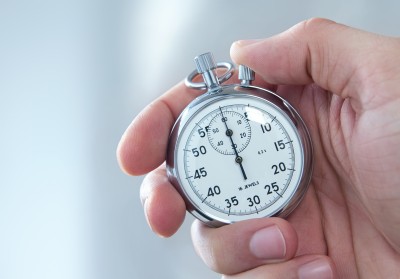A study measuring cognitive performance in sleep deprived individuals shows that the more sleep deprived you become, the slower you are able to finish a task. The amount of time you have been awake and what time of day you attempt the task can have an effect on the outcome as well.
Subjects were asked to identify a mismatch between two otherwise identical formations of objects, after various periods of sleep deprivation and at various times of day. The researchers found that sleep deprivation had a significant effect on the speed of task performance. Over the course of the three-week long experiment, researchers noted that the speed of completion was reduced further upon further sleep deprivation. After the first week of sleep deprivation the participants reacted about 1 second slower, and after two weeks of sleep deprivation they reacted 2 seconds slower than originally.
Circadian phase, or the biological clock, was found to have a great effect on the timing of performance as well. Researchers noted that the accuracy of performance remained unaffected throughout the experiment, it was simply slower.


No comments yet.